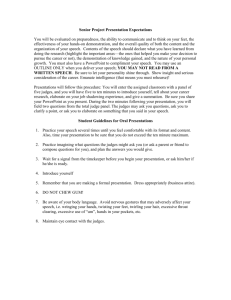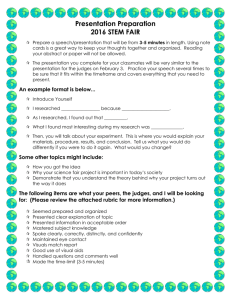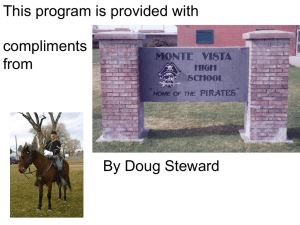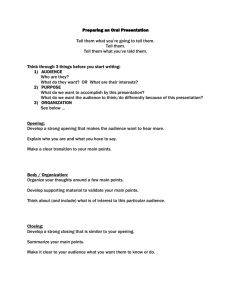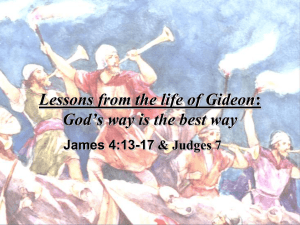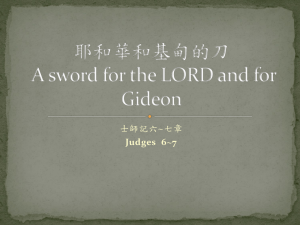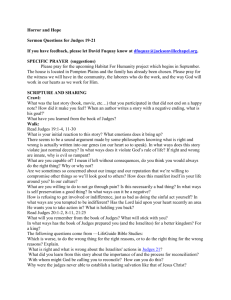A) DEBORAH. Judges 4 y 5. → The pattern of the Cosmic Conflict is
advertisement
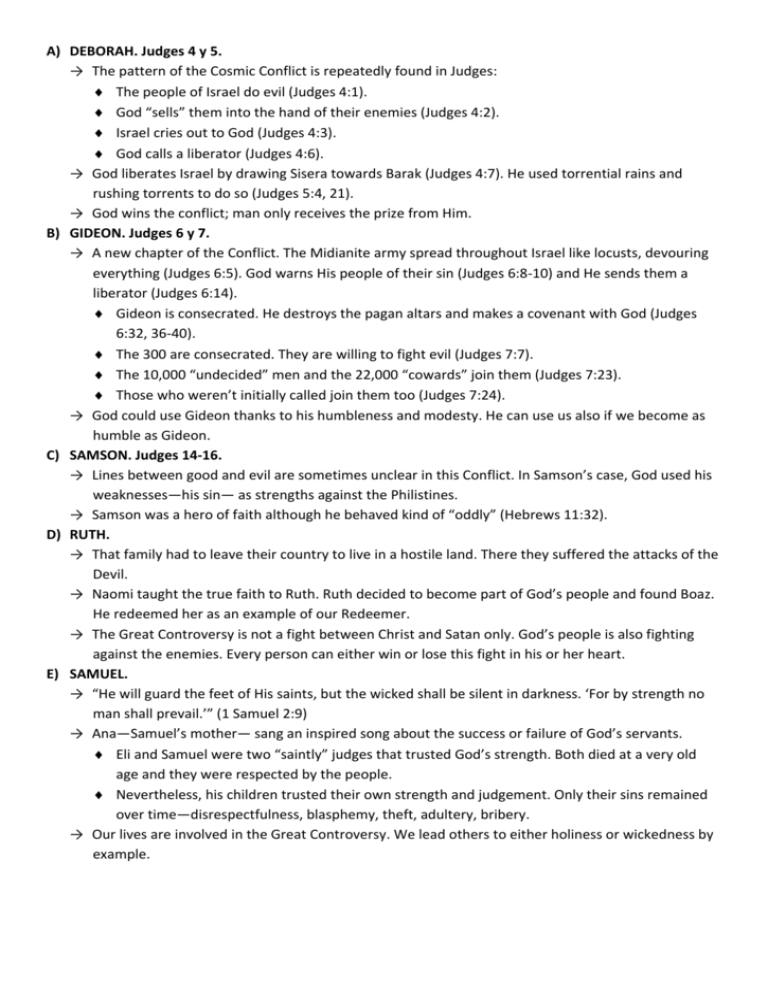
A) DEBORAH. Judges 4 y 5. → The pattern of the Cosmic Conflict is repeatedly found in Judges: The people of Israel do evil (Judges 4:1). God “sells” them into the hand of their enemies (Judges 4:2). Israel cries out to God (Judges 4:3). God calls a liberator (Judges 4:6). → God liberates Israel by drawing Sisera towards Barak (Judges 4:7). He used torrential rains and rushing torrents to do so (Judges 5:4, 21). → God wins the conflict; man only receives the prize from Him. B) GIDEON. Judges 6 y 7. → A new chapter of the Conflict. The Midianite army spread throughout Israel like locusts, devouring everything (Judges 6:5). God warns His people of their sin (Judges 6:8-10) and He sends them a liberator (Judges 6:14). Gideon is consecrated. He destroys the pagan altars and makes a covenant with God (Judges 6:32, 36-40). The 300 are consecrated. They are willing to fight evil (Judges 7:7). The 10,000 “undecided” men and the 22,000 “cowards” join them (Judges 7:23). Those who weren’t initially called join them too (Judges 7:24). → God could use Gideon thanks to his humbleness and modesty. He can use us also if we become as humble as Gideon. C) SAMSON. Judges 14-16. → Lines between good and evil are sometimes unclear in this Conflict. In Samson’s case, God used his weaknesses—his sin— as strengths against the Philistines. → Samson was a hero of faith although he behaved kind of “oddly” (Hebrews 11:32). D) RUTH. → That family had to leave their country to live in a hostile land. There they suffered the attacks of the Devil. → Naomi taught the true faith to Ruth. Ruth decided to become part of God’s people and found Boaz. He redeemed her as an example of our Redeemer. → The Great Controversy is not a fight between Christ and Satan only. God’s people is also fighting against the enemies. Every person can either win or lose this fight in his or her heart. E) SAMUEL. → “He will guard the feet of His saints, but the wicked shall be silent in darkness. ‘For by strength no man shall prevail.’” (1 Samuel 2:9) → Ana—Samuel’s mother— sang an inspired song about the success or failure of God’s servants. Eli and Samuel were two “saintly” judges that trusted God’s strength. Both died at a very old age and they were respected by the people. Nevertheless, his children trusted their own strength and judgement. Only their sins remained over time—disrespectfulness, blasphemy, theft, adultery, bribery. → Our lives are involved in the Great Controversy. We lead others to either holiness or wickedness by example.
